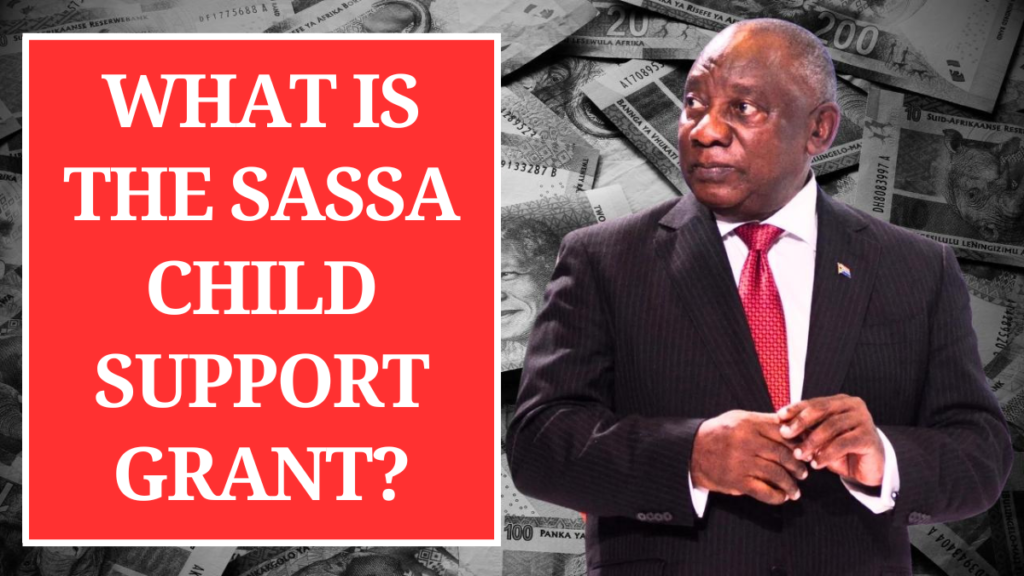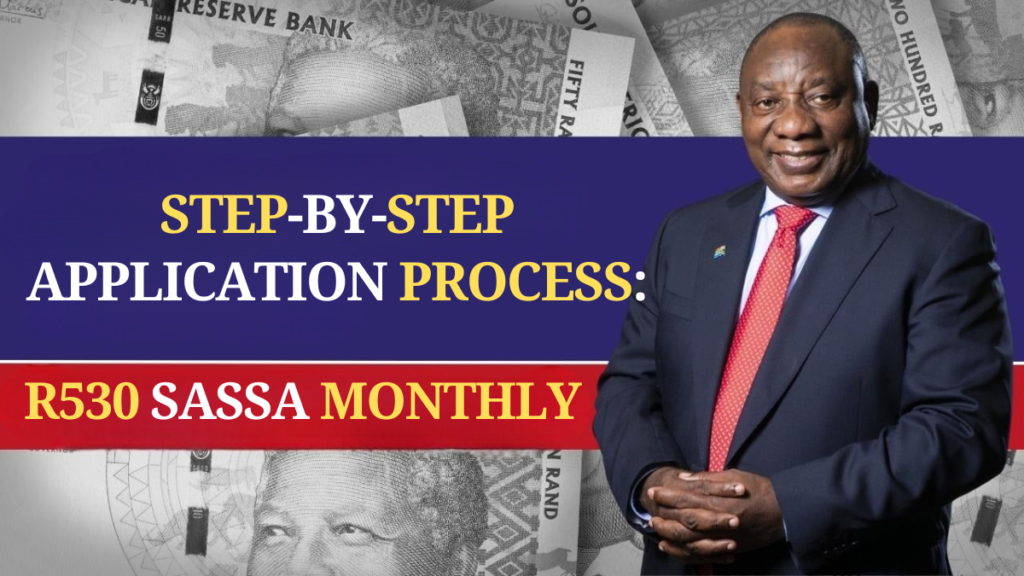South Africa’s Social Security Agency (SASSA) continues to be a lifeline for vulnerable households, especially those with children living under financially strained circumstances. To date, April 2025, the Child Support Grant (CSG) is still an essential source of income for millions of South African families. The monthly grant gives R530 per qualifying child to help cover food, school materials, clothing, and general care costs.
In this exhaustive guide, we’ll guide you through everything there is to know about the R530 SASSA Monthly Child Support Grant, including how to be eligible, when they are paid, the application procedure, and essential news for April 2025.
What Is the SASSA Child Support Grant?
The SASSA Child Support Grant is a state-sponsored social relief scheme designed for poor caregivers who are taking care of children below the age of 18 years. It is designed to assist guardians in meeting basic necessities such as food, education, and dressing for the child.

This monthly allowance forms part of South Africa’s wider social protection plan and has continued to adapt to changing economic realities. In April 2025, the payment is R530 per child, paid out monthly.
Why April 2025 Matters
April is the start of the new financial year for SASSA. It is also a time when changes in grant levels or eligibility criteria are occasionally made. For 2025, although the base rate of R530 has not changed, the agency has worked to simplify the application and payment process, cutting delays and enhancing accessibility.
Eligibility Criteria Who Can Apply?
To be eligible for the R530 Child Support Grant, the following eligibility criteria must be fulfilled by applicants:
Major Requirements:
- The applicant should be a South African citizen, a permanent resident, or a refugee.
- Both the applicant and child should be staying in South Africa.
- The child should be under the age of 18.
- The child cannot be placed under the care of a state institution.
Income Threshold:
- Single applicants need to earn a yearly income that is less than R57,600.
- Married couples will need to earn a combined R115,200 per year.
This implies the grant aims to reach low-income individuals and households so that children in financially poor households have the necessary resources available to them.
How Much Is Paid?
The amount paid in April 2025 is a confirmed R530 per child paid monthly. You will receive an additional grant for each child for whom you care if you have more than one child.
Payment Schedule When Can You Expect to Be Paid?
SASSA typically makes grant payments during the first week of the month. In April 2025, the anticipated Child Support Grant payment window is: April 3 to April 6, 2025
Beneficiaries are not encouraged to go to collection points on the first day to prevent congestion and queues. Money is still in your account after the deposit, and therefore there is no urgency to withdraw.
How to Apply for the SASSA Child Grant
Step-by-Step Application Process:

- Gather Required Documents:
- Your South African ID or refugee permit.
- The birth certificate of the child.
- Proof of income (e.g., UIF documents, salary slips).
- Proof of residence (utility bill or affidavit).
- Apply Online or In Person:
- You may apply at your local SASSA office, or
- Go to the SASSA services website to register and apply online.
- Wait for Approval:
- Applications take 90 days to be processed.
- Payment will be made retroactively from the application date once approved.
- Choose Payment Method:
- Bank account
- SASSA/Postbank card
- Retail partners such as Shoprite, Checkers, or Boxer stores
What If You Miss the Payment?
If your payment is delayed or hasn’t been reflected, don’t worry. Here’s what you can do:
- Check your application status online at the SASSA portal.
- Go to your local SASSA branch.
- Contact the SASSA Helpline: 0800 60 10 11
Payments can be delayed because of technical glitches or bank processing times, but they are usually sorted out quickly.
Can You Reapply or Appeal?
Yes. If your application was denied, you can appeal in 90 days. Just go to a SASSA office with new documents or corrections. You can also reapply if your financial situation has improved or if the child was not eligible before.
Updates for 2025
The government of South Africa is making efforts to:
- Make more services digital, cutting down on the need to visit in person.
- Enhance detection of fraud and eliminate double-dipping.
- Boost grant eligibility awareness in rural communities.
- Institute biometric verification processes to increase security.
There have been no reported increases to the R530 in April, although SASSA has reserved mid-year reviews for inflationary movements and available space in the fiscus.
Tips on preventing fraud
SASSA has released a number of fraud notices. Here is how to safeguard your grant:
- Never give away your SASSA PIN or card information.
- Only give documentation to proper SASSA personnel.
- Avoid fake SMS es, emails, or WhatsApp messages promising “bonus grants.”
If you suspect any suspicious activity, report it immediately by calling the Anti-Fraud Hotline: 0800 701 701.
Read More :- Complete Guide to SASSA Grant Payments in 2025 – Key Facts, Updated Figures & Fraud Prevention Tips
Conclusion
The R530 Child Support Grant remains a crucial support mechanism for poor families in South Africa. In April 2025, SASSA assured the ongoing payment of this monthly grant, ensuring that children all over the country are able to live with dignity and meet basic needs. If you qualify and have not applied yet, this is the moment to make your move.
With a dependable routine, streamlined applications, and expanding digital assistance, the 2025 grant scheme is more available and secure than ever.
FAQs:-
What is the SASSA Child Support Grant for April 2025?
It’s a monthly payment of R530 provided by SASSA to support the basic needs of eligible children. The payment continues as part of the 2025 schedule.
When will the R530 grant be paid in April 2025?
The payment is expected to be disbursed within the first week of April 2025, usually between the 3rd and 6th.
What documents are required to apply?
You’ll need your ID, the child’s birth certificate, proof of income (if any), and proof of residency



















